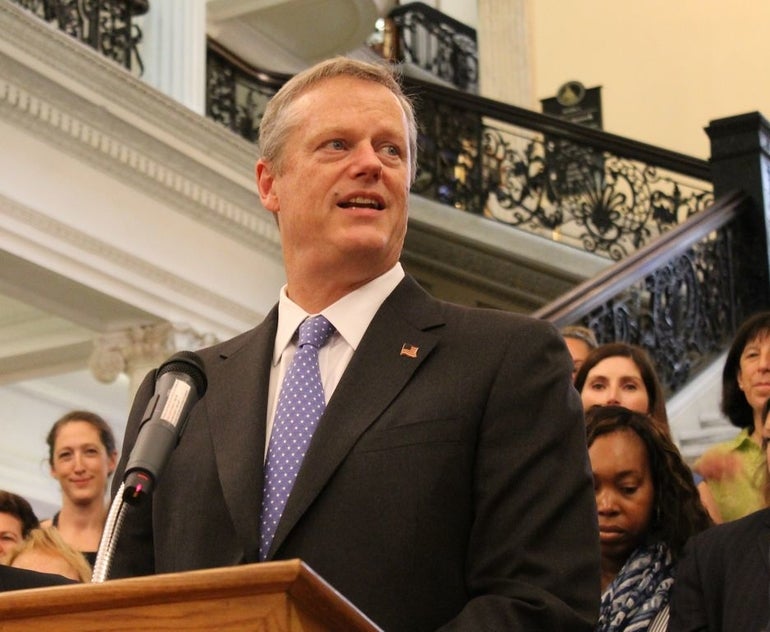Gov. Charlie Baker couldn’t quite bring himself on Monday to say he would support a higher tax rate on retail marijuana sales, but he didn’t rule it out either.
“I’m going to let the Legislature kick this one around a little, ” Baker said during his monthly appearance on WGBH’s “Boston Public Radio” show.
“No, no, no, no,” he added as clarification when host Jim Braude brought up a possible veto threat.
Several prominent Democrats, including Treasurer Deborah Goldberg and Senate President Stanley Rosenberg, have been open with their belief that the 3.75 percent retail sales tax on pot is too low, and the tax rate will be up for debate when the Legislature considers changes to the legalization law that went into effect last Thursday.
The law stipulates a 3.75 percent excise tax on marijuana will be added to the state’s 6.25 percent sales tax, effectively taxing pot at 10 percent. Cities and towns have the ability to add an additional sales tax of up to 2 percent on top of that.
At 12 percent, Massachusetts would still have the lowest marijuana tax rate of any state that has legalized the adult use of the drug. Colorado taxes marijuana at 29 percent, Washington 37 percent, Oregon 17 percent and Alaska 25 percent, according to the Tax Foundation.
“I think the key question is how much is it going to cost to actually implement the law and what do we think the tax that’s in place as part of that law is going to raise. We don’t know the answer to either of those questions yet, so let’s figure out what the answer is,” Baker said on the radio, and later reiterated after a private meeting with legislative leaders.
Back in October when asked about the tax rate before the election, Lt. Gov. Karyn Polito said: “This is a new industry and compared to other states like Colorado the question, in our view, is flawed because it has a tax rate that in our view most likely would not cover the cost to regulate the industry.”
Jim Borghesani, spokesman for the pro-legalization campaign, has said that the ballot question sponsors think lawmakers should give the current tax structure a chance to work before pursuing changes.
Baker also said that any changes to the law to improve public health or safety should be made consistent with “voters’ intent.”
So how would that standard apply to Rosenberg suggestion that the legal age to consume pot be raised from 21 to 25?
“It would depend upon what else was part of the bill, but my initial reaction would be I think that would be a hard sell,” Baker said.
House Speaker Robert DeLeo, who met with Baker and Rosenberg for the last time in 2016 on Monday afternoon, compared the marijuana tax issue to the decision over gaming taxes that lawmakers grappled with before legalizing casinos.
DeLeo said the House will want to set the tax rate high enough to generate enough revenue for the state to oversee and regulate a legal marijuana market and low enough so as not to drive consumers to the black market.
“I don’t have an ideal number. I think that’s probably one of the major questions that we’re going to deal with,” the speaker said.
DeLeo also struggled to put a timeframe on how quickly the Legislature will be able to produce a marijuana bill after the new session convenes in January.
Noting that he believes just 10 House lawmakers supported Question 4 in November, DeLeo said, “To me that translates to a highly robust debate in terms of rules, regulations, age, taxes, everything and anything. I think, in the House anyway, it’s going to be an interesting debate. How fast it can come out of committee is one thing. How fast it can come out after the debate and conference is another.”
Asked if getting legislation passed in the first year of the two-year session was possible, DeLeo said would not be his intent to “unduly delay anything” and the House would “do everything we can” to get something passed in 2017.
Rosenberg, who was standing to the side of DeLeo, nodded his head in agreement.
“It will move along,” DeLeo said.

